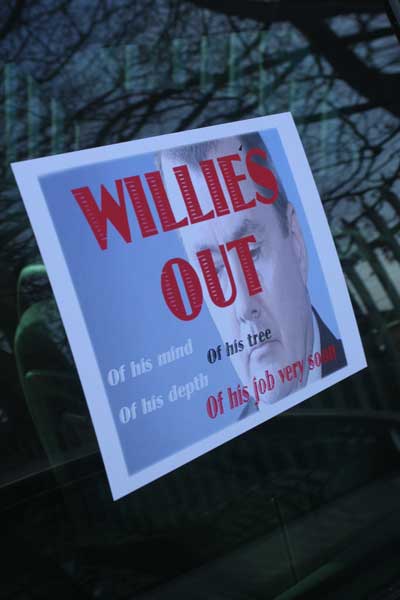Simon Calder: No laughing matter for BA's cabin crew
The man who pays his way

Your support helps us to tell the story
From reproductive rights to climate change to Big Tech, The Independent is on the ground when the story is developing. Whether it's investigating the financials of Elon Musk's pro-Trump PAC or producing our latest documentary, 'The A Word', which shines a light on the American women fighting for reproductive rights, we know how important it is to parse out the facts from the messaging.
At such a critical moment in US history, we need reporters on the ground. Your donation allows us to keep sending journalists to speak to both sides of the story.
The Independent is trusted by Americans across the entire political spectrum. And unlike many other quality news outlets, we choose not to lock Americans out of our reporting and analysis with paywalls. We believe quality journalism should be available to everyone, paid for by those who can afford it.
Your support makes all the difference."No smirking." Never mind "no smoking" signs: the crew rooms of easyJet, BMI and Virgin Atlantic need notices reminding staff to stifle their chuckles at the way the bosses and cabin crew of British Airways are contriving to send business their way.
For the past four months, the squabble over cabin-crew rosters at BA has driven passengers into the departure lounges of the opposition. The union Unite has offered concessions to reduce the high cost of crewing BA flights, but the management is demanding deeper cuts.
While the two sides trade insults and lawsuits over the best way to run an airline, all BA's rivals need do is keep calm and carry on, while extra revenue rolls in from passengers anxious not to risk being grounded. They can even throw in a few cheeky extras, such as easyJet's promise of free "Speedy Boarding" for BA Gold card holders during a strike.
The next round begins on Monday, when the ballot result is due to be announced. But at the same time, an endgame will start to emerge. Cabin crew will vote in favour of a strike. The union will announce one or more stoppages, though with rather less glee than they did in December when they revealed plans to ground the airline for 12 days over Christmas and New Year.
BA's management, having enjoyed two months' breathing space since a High Court judge called off the "strike that never was", will quickly respond with an emergency schedule.
"It is inconceivable that BA should even be thinking of running its airline – the national carrier – with scab labour," says Tony Woodley, Unite's joint general secretary, with a delicacy that has characterised this dispute. But dozens of BA Airbuses and Boeings will take off despite the strike. Crew who are keener on flying than picketing will be augmented by former flight attendants and freshly trained ground staff and pilots.
Passengers booked to marginal destinations such as Lusaka or Lyon may well find their flights cancelled; BA will concentrate its resources on key long-haul destinations such as New York and Tokyo, and high-earning short-haul flights (eg Heathrow-Moscow) on which crew can get there and back in a day.
British Amateur Airways, as it will surely be called, may lack the polish and panache that BA likes to present, but passengers will accept what the airline calls a "simplified service" as a small price to pay for getting off the ground, while high-spending Executive Club members will be showered with thousands of BA Miles for their patience.
The airline is betting that it can maintain a respectable operation even when most cabin crew exercise their right to stay at home. BA managers believe support for the stoppage will soon start to crumble, and that by then they will be seen to have "broken" the strike. They will make enough minor concessions to Unite to enable union officials to pretend that the action has been successful.
And then the acrimony really begins. Every striker, insists BA, will run the risk of losing their generous travel privileges for life. For most crew (and their partners), this would prove merely infuriating – but for the 1,500 staff who commute from abroad to report for duty at Heathrow or Gatwick, it would be financially crippling. They could, in theory, have to search on the open market for cheap flights on easyJet, BMI and Virgin Atlantic in order to get to work. Yet more glee at BA's rivals.
Let us hope that wise heads prevail
BA's chief executive, Willie Walsh, and his chairman, Martin Broughton, are taking the long view. BA is sitting on plenty of cash to see it through the bitterest dispute in British aviation history. It may have jumbo-sized pension liabilities, but it also possesses the largest number of slots at the world's most desirable airport, Heathrow. And it owns a portfolio of exclusive rights to many valuable routes.
BA's shareholders regard the airline as a cash machine that, at present, is not paying out. They are prepared to lose some revenue and sustain some brand attrition to drive down costs in order to return the airline to a financially upright position. They see cabin crew not as an ally but as an obstacle in that quest.
For the sake of BA's aggrieved stewards and stewardesses – and for the passengers who ultimately bankroll the whole expensive business – let us hope wise heads prevail over the next few days.
Join our commenting forum
Join thought-provoking conversations, follow other Independent readers and see their replies
Comments